Focus area: The industry’s most ambitious climate action
1. Sustainable offering
Through our services, Fasadgruppen contributes to the reduction of the climate impact of properties. For example, according to the Swedish National Board of Housing, Building and Planning, the heating of properties accounts for around 20 percent of Sweden’s energy consumption, while many buildings are also in great need of renovation – which means that a significant proportion of the energy use can be traced to leakage. Measures such as façade and loft insulation, window renovations and replacements are therefore crucial to reducing energy use over time.
The most environmentally friendly solutions can often also be the most expensive in the short term, which is why the Group works on increasing awareness about the long-term benefits of choosing climate-smart alternatives. In addition to offering energy efficiency improvement services,
Fasadgruppen also works to constantly improve working methods and processes and to reduce material waste in project implementation.
2. Sustainable procurement
Materials constitute the largest climate impact in Fasadgruppen’s value chain and the Group strives to increase the proportion of sustainable procurement, for example bricks made using biogas. The decision on which materials should be used is in most cases taken by the end customer, but through the provision of relevant information, Fasadgruppen can influence the customer so that they choose the most environmentally friendly alternative. The Group works with most of its suppliers to increase the proportion of sustainable procurement and to improve the data available so that the customer can take a well-supported decision.
3. Reduced Climate Impact
Fasadgruppen strives to reduce climate impact through responsible transportation, travel, purchasing and energy use. The Group’s greenhouse gas emissions come mainly from the vehicle fleet, and Fasadgruppen buys only hybrid or electric vehicles. By 2030, all of the Group’s vehicles must be fossil-free, as well as other transport that Fasadgruppen orders. If the subsidiaries are able to choose the electricity company for their premises, a centrally procured agreement with green electricity is used.
All subsidiaries in Fasadgruppen have been approved according to ISO 9001 (quality certification) and ISO 14001 (environmental certification), or equivalent. ISO certification recognises the work the companies are doing to ensure good control over the quality of their operations and to reduce the related environmental impact of these activities. ISO certification is necessary to be eligible to tender for certain projects, especially in the case of public procurements. If a newly acquired company is not certified, we immediately start work on obtaining certification as part of Fasadgruppen’s integration process.
In 2024, Fasadgruppen has received approval on its near-term and net-zero greenhouse gas emissions reductions targets from the Science Based Targets initiative (SBTi). Based on a 2023 base year, Fasadgruppen commits to reach net-zero greenhouse gas emissions across the value chain by 2045.
Overall Net-Zero Target: Fasadgruppen Group AB commits to reach net-zero greenhouse gas emissions across the value chain by 2045.
Near-Term Targets: Fasadgruppen Group AB commits to reduce absolute scope 1 and 2 GHG emissions 42% by 2030 from a 2023 base year. Fasadgruppen Group AB also commits that 80% of its suppliers by spend covering purchased goods and services will have science-based targets by 2029.
Long-Term Targets: Fasadgruppen Group AB commits to reduce scope 1 and 2 GHG emissions 90% by 2045 from a 2023 base year. Fasadgruppen Group AB also commits to reduce scope 3 GHG emissions 97% per million SEK value added within the same timeframe.
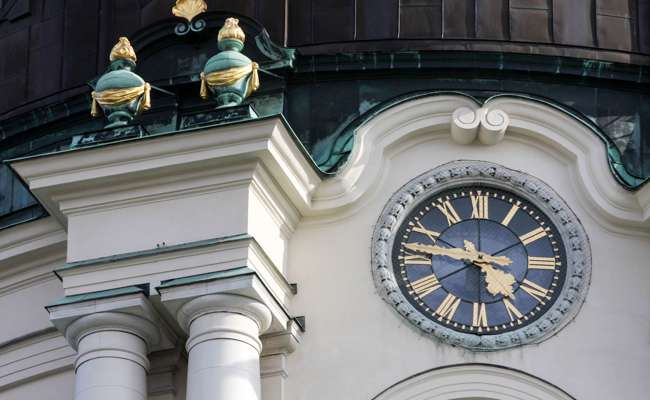
Fasadgruppen was established in 2016 through the merger of two façade companies, both of which had extensive experience from the industry and with good profitability. The idea was that the companies would continue to operate independently with continued local knowledge, commitment and competence - but at the same time be able to keep purchase prices low and offer the customer a safe pair of hands in a larger context.
History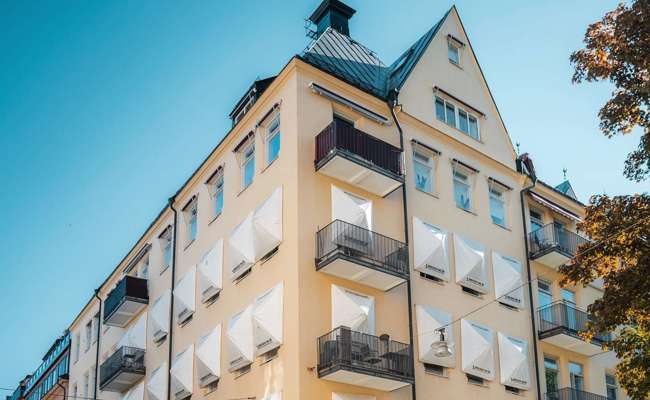
Fasadgruppen’s strategy is based on acquiring and developing local market leaders, benefiting from cooperation and economies of scale within the Group and being able to provide a sustainable and secure offering to customers.
Strategy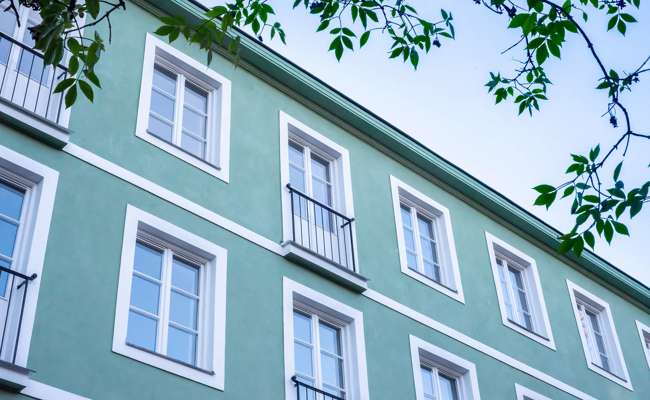
Fasadgruppen’s business model is based on a decentralised structure that combines the entrepreneurial endeavour, proximity to customers and limited overheads of the local company with shared oppportunities to achieve economies of scale and offer comprehensive solutions to customers.
Business model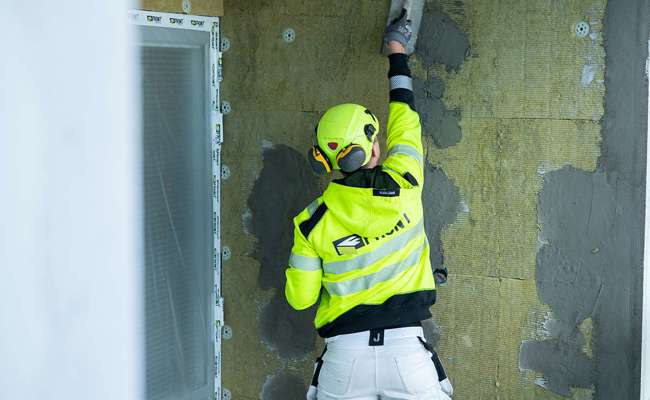
Fasadgruppen’s subsidiaries are active on the building envelope services market in Sweden, Denmark, Norway and Finland. Around 80 percent of the business is focused on renovating and upgrading properties, with the remainder on new construction.
Market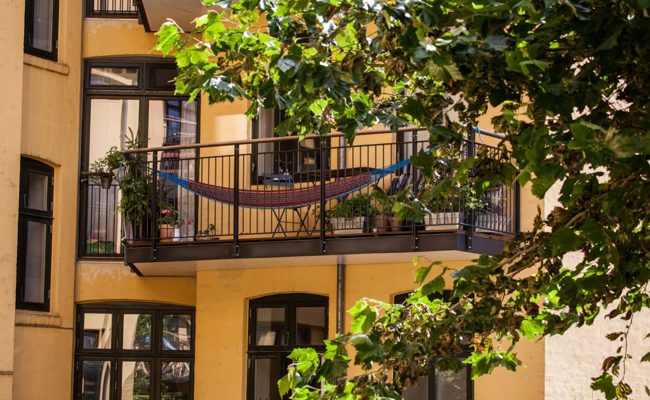
As the leading group within façade work in the Nordic countries, Fasadgruppen supports and promotes sustainable development in our daily work.
Sustainability